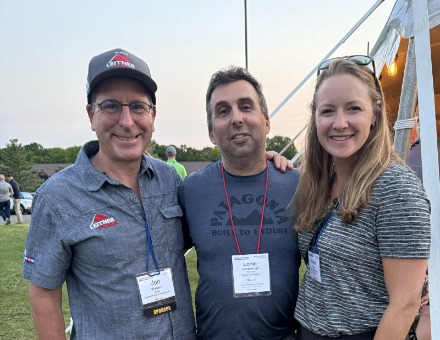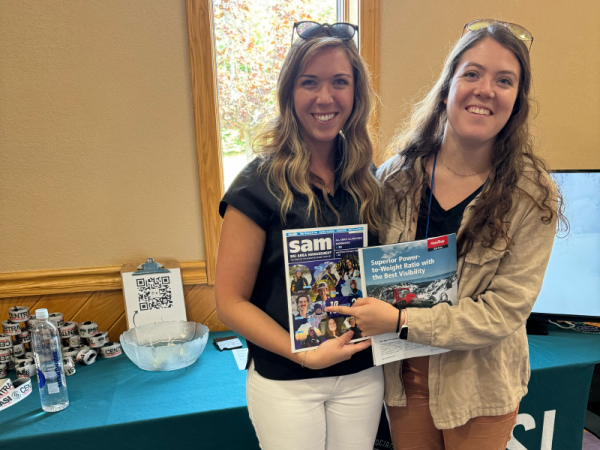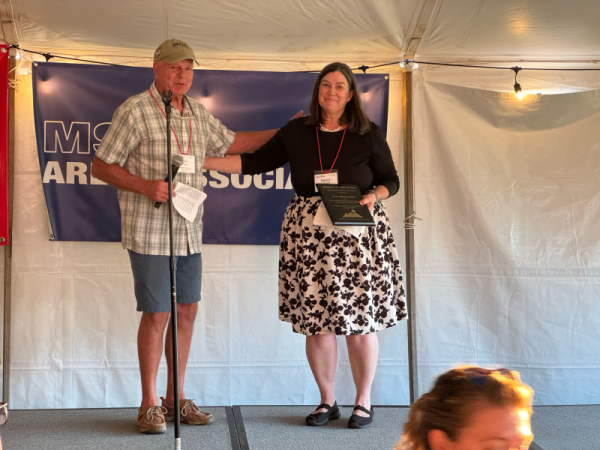Midwest ski area operators, their teams, and industry suppliers gathered earlier this week at the Midwest Ski Areas Association (MSAA) Summer Meeting and Trade Show at the beautiful Treetops Resort in Gaylord, Mich., August 11-14. Attendance was slightly down from last year, which was no surprise given the very challenging winter most experienced. In total, there were 141 supplier members and 261 ski area and associated attendees representing 41 resorts (last year 61 resorts attended).
Attendance was slightly down from last year, which was no surprise given the very challenging winter most experienced. In total, there were 141 supplier members and 261 ski area and associated attendees representing 41 resorts (last year 61 resorts attended).
Many of the conversations at the show centered around the challenges from this past winter and how resorts are going to approach this winter. Some of the more seasoned operators said 2023-24 was the most challenging winter they can remember.
There was ample evidence to support that. In her keynote, NSAA president Kelly Pawlak cited the organization’s data that showed the Midwest was down 26.7% in skier visits. Pawlak also shared that the Midwest’s 20-year trend line for skier visits is down. And that’s not all: Snowfall is declining, too, with an average of 74 inches for 2005-2015 and 67 inches for 2016-2024. (Snowfall is declining nationally as well, from an average of 201 for 2005-2015 to 173 inches for 2016-2024.)
NSAA data show that the Midwest region has done the best job nationally in reaching a young audience, with an average visitor age of 25 compared to the national average of 37. But even so, in just the past 10 years the Midwest average age rose from 19 to 25 years old.
To help turn things around, Midwest areas are investing in infrastructure and rank third in the country regionally, putting $52,833,493 into capital expenditures.
The NSAA figures are projections based on numbers resorts submit to NSAA; Pawlak said that the number of reporting resorts was understandably down this year, but implored ski areas to provide their data so the organization can present a more complete picture in the future.
As always, the MSAA program was chock full, with workshops and sessions covering topics from snowmaking and lifts to grooming, staffing, rental, marketing, and customer service. In many of the sessions, talk of the challenging season just past led operators to ponder how they might approach this upcoming season differently, particularly regarding decisions about when to make snow and investing more in compressors and pumps to get more from their efforts in shorter windows. There was also talk of summer maintenance and replacement of pipes which showed stress during this last season.
Several sessions offered up ideas to help resorts come back strong this season. One example: Sam Rufo’s session, “Reviving Enthusiasm: Strategies for a successful ski season after a low snow year.”
Ticket pricing was frequent topic of discussion on the tradeshow floor. The Midwest has long offered the most affordable ticket of any region, according to NSAA’s data, but many operators said they will need to raise prices a bit this season to make up for lost ground from this past season. There were many ticket strategies discussed, including dynamic or demand pricing, reverse dynamic pricing (a term the folks at Perfect North and Timberline use), and walk-up ticket pricing.
At the awards ceremony, Scott Crislip received the Jim Vanderkelen Achievement Award. Crislip is part owner, along with his wife and brother-in-law, of Ohio’s Snow Tails for the past 25 years.
Two individuals were inducted into the Michigan Ski Hall of Fame. Michele “Mickey” MacWilliams was recognized for a career spanning over six decades, having served in marketing roles and as the executive director of the Michigan Snowsports Industries Association. Dorie Sarns gained entry to the Hall posthumously for her role in creating Nub’s Nob and running it as the sole owner from 1962 until she sold it in 1977. She was cited for devoting her life to making skiing accessible and enjoyable for everyone. Her granddaughter accepted on her behalf.
Last but certainly not least, Jim Vander Spoel was honored for his long career as the Ski Area Management director at Gogebic Community College. He is retiring, and Keith Tuan is taking his place.






























